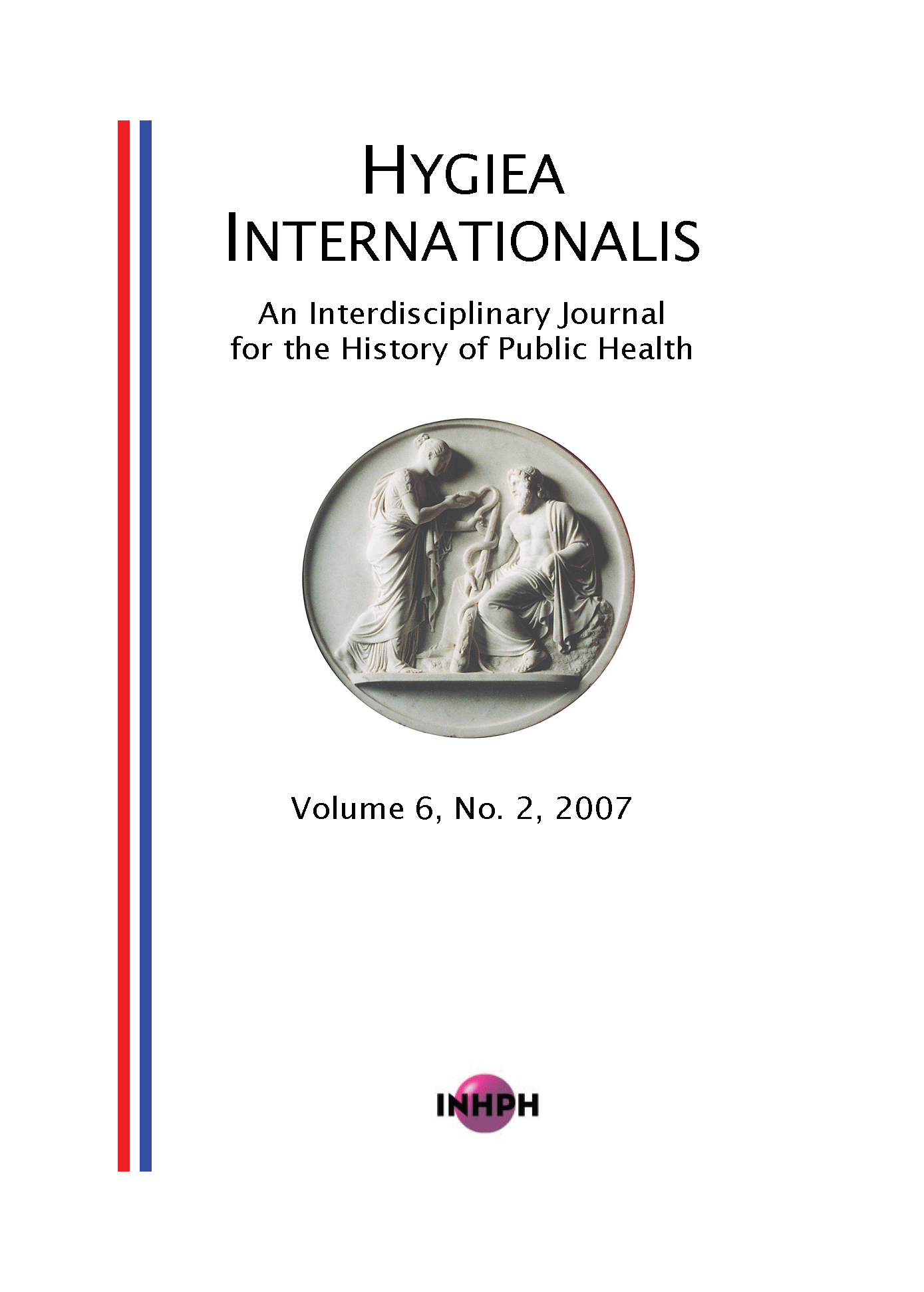Health Care between Medicine and Religion
The Case of Catholic Western Germany around 1800
DOI:
https://doi.org/10.3384/hygiea.1403-8668.0771177Keywords:
Enlightenment medicine, secularization, history of universities, Catholicism, pastoral medicine, religious nursing, romantic medicine, Catholic hospitalsAbstract
The current revision of the relationship between religion and medicine in the ’post-secular’ or ’desecularised’ society invites a new look on their function for each other at the beginning of the modern era, i.e. the political and economic secularisation during the dissolution of the Ancient Empires in Europe. Exemplified by the Prince-Archbishoprics of Western Germany, the consequences of the church’s change from state power to mere pastoral care are demonstrated for the three groups of Catholic physicians in academic medicine, priests in rural health care and nuns in nursing. During the turn from the enlightenment idea of religion serving medicine to the romantic concept of medicine contributing to religion their activities shifted dramatically: Whereas more members of religious congregations entered nursing than before, priests had to give up any medical work and Christian doctors were forced to cope with the separation between academic medicine and the religious world view.Downloads
Published
2007-12-27
How to Cite
Bruchhausen, W. (2007). Health Care between Medicine and Religion: The Case of Catholic Western Germany around 1800. Hygiea Internationalis: An Interdisciplinary Journal for the History of Public Health, 6(2), 177–194. https://doi.org/10.3384/hygiea.1403-8668.0771177
Issue
Section
Articles
License
Copyright (c) 2007 the Author(s)

This work is licensed under a Creative Commons Attribution-NonCommercial 4.0 International License.






